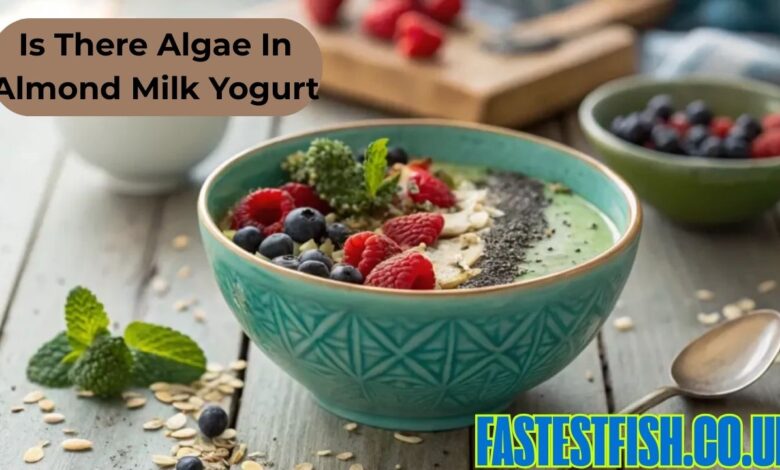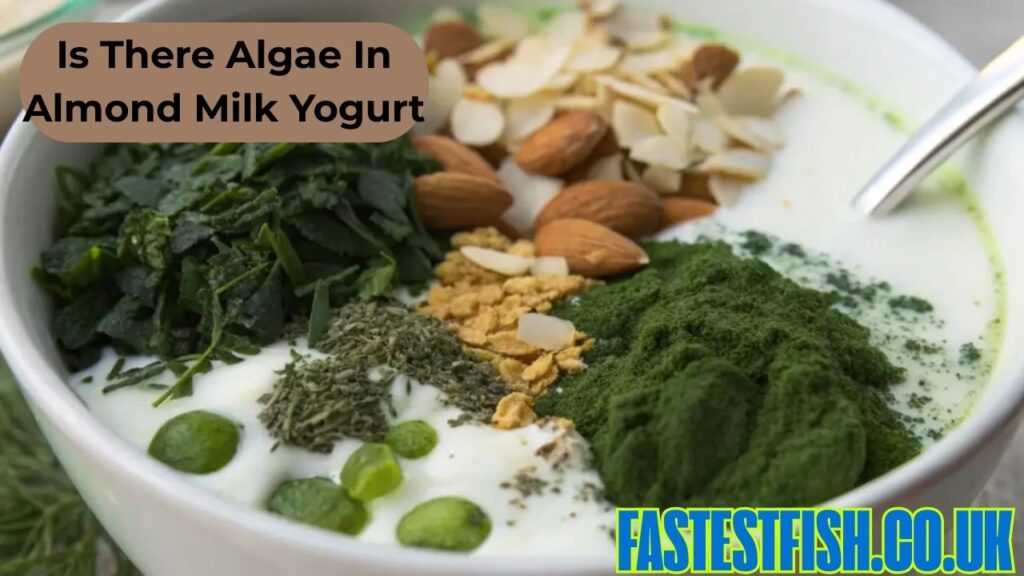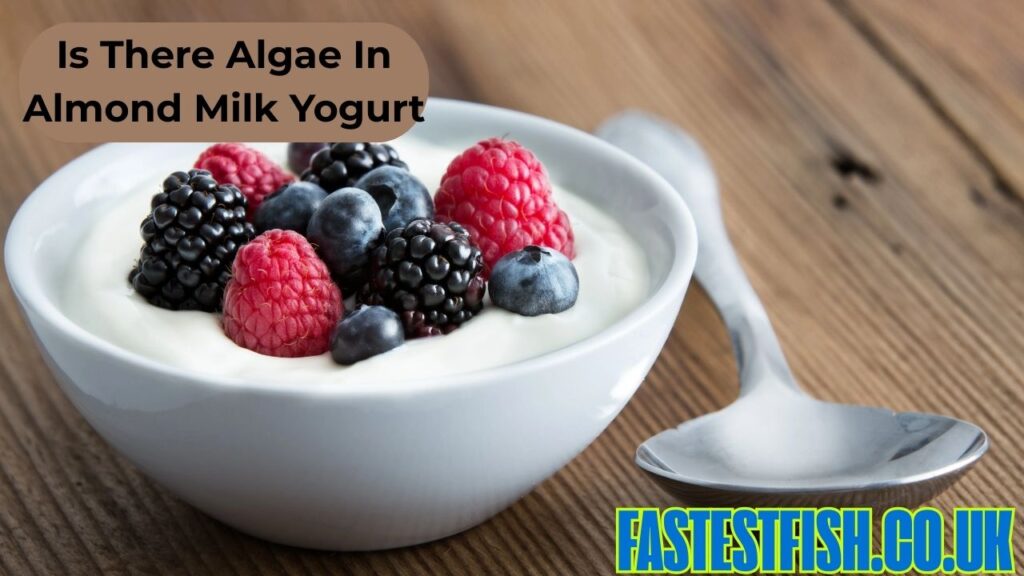Is There Algae in Almond Milk Yogurt? A Complete Breakdown

Introduction to the Question
The plant-based food industry has grown rapidly, with almond milk yogurt becoming one of the most popular dairy alternatives. However, many consumers are now asking: is there algae in almond milk yogurt? This question reflects growing curiosity about ingredients, nutrition, and the science behind plant-based products. To answer it properly, we need to explore how almond milk yogurt is made, what additives are sometimes used, and whether algae actually plays a role in these foods.
How Almond Milk Yogurt is Made

To understand is there algae in almond milk yogurt, it helps to first look at the production process. Almonds are soaked, blended with water, and strained to create almond milk. That milk is then fermented with probiotic cultures, resulting in a creamy, tangy yogurt alternative. Additional thickeners, stabilizers, and natural flavors are often added to mimic the texture of traditional dairy yogurt. But where might algae fit in this process?
The Role of Additives in Plant-Based Yogurt
When asking is there algae in almond milk yogurt, many people are really wondering about additives derived from algae. Some plant-based products use natural thickeners like carrageenan (extracted from red seaweed) or algal-based stabilizers to improve consistency. These ingredients are not whole algae but processed extracts that come from algae-related sources, which can sometimes create confusion.
Algae-Derived Ingredients Explained
To clarify the concern over is there algae in almond milk yogurt, it’s important to know what algae-derived ingredients actually are. For example:
- Carrageenan: Extracted from red seaweed, used as a thickener.
- Alginates: Derived from brown algae, useful in food gels.
- Algal oils: Sourced from algae, rich in omega-3 fatty acids.
So while algae in its raw form is not added to almond milk yogurt, certain extracts from algae may sometimes be included for texture or nutritional purposes.
Nutritional Benefits of Algal Ingredients
Another angle to consider in is there algae in almond milk yogurt is nutrition. Algal oils, for example, are one of the few plant-based sources of DHA and EPA omega-3s, which are usually found in fish. Including algae-derived nutrients in almond milk yogurt can enhance its health profile, making it a valuable dairy-free alternative for people who want added benefits.
Misconceptions About Algae in Foods
The phrase is there algae in almond milk yogurt often arises from misconceptions. Many consumers imagine whole algae floating in their yogurt, which is not accurate. Instead, the industry uses refined, food-safe extracts from algae or seaweed. These ingredients are tasteless, colorless, and specifically approved for food use.
Comparing Brands and Ingredients
If you want a clear answer to is there algae in almond milk yogurt, the truth depends on the brand. Some almond milk yogurts rely solely on natural starches or pectins for thickening, while others may use carrageenan or algal extracts. Reading ingredient labels is the best way to know exactly what is inside your almond milk yogurt.
Consumer Concerns and Transparency
The rise of questions like is there algae in almond milk yogurt shows that modern consumers care deeply about transparency. People want to know what they are eating and how it affects their health. This has pushed many plant-based food companies to clarify their ingredient choices, with some explicitly labeling their use of algae-based additives or choosing alternatives.
The Future of Algae in Plant-Based Foods

Looking at the bigger picture of is there algae in almond milk yogurt, the future of algae in foods looks promising. Algae is sustainable, nutrient-rich, and versatile. As the plant-based industry evolves, more products may incorporate algae-derived ingredients not only for texture but also for added nutrition. This trend suggests that algae could become a standard part of future dairy alternatives.
Conclusion: The Truth Behind the Question
So, is there algae in almond milk yogurt? The answer is: sometimes indirectly. Most almond milk yogurts do not contain whole algae, but some may include algae-derived thickeners, stabilizers, or oils. These ingredients are safe, beneficial, and common in the food industry. For consumers who want to avoid them, reading the label is key. For those who embrace innovation, algae can actually improve the nutritional quality of almond milk yogurt.
Also Read: Orion Stars Online: The Ultimate Guide to Digital Gaming and Entertainment


